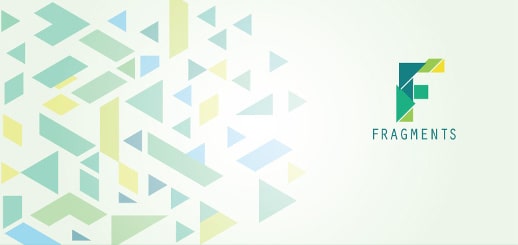
Sep 2017
11 Mon
12 Tue 08:30 AM – 05:20 PM IST
13 Wed 08:30 AM – 05:30 PM IST
14 Thu
15 Fri
16 Sat
17 Sun

Sep 2017
11 Mon
12 Tue 08:30 AM – 05:20 PM IST
13 Wed 08:30 AM – 05:30 PM IST
14 Thu
15 Fri
16 Sat
17 Sun
#About Fragments:
Fragments is a two-day, single track conference on the mobile ecosystem in India. The conference will feature talks – full-length and crisp – panel discussions, and Off-The-Record (OTR) sessions.
Modern Development Practices
Continuous Integration/Continuous Delivery
Design
Localisation and Accessibility
Progressive Web Apps
On the ground case studies
Platform specific talks
HasGeek believes in open source as the binding force of our community. If you are describing a codebase for developers to work with, we’d like for it to be available under a permissive open source licence. If your software is commercially licensed or available under a combination of commercial and restrictive open source licences (such as the various forms of the GPL), please consider picking up a sponsorship. We recognise that there are valid reasons for commercial licensing, but ask that you support us in return for giving you an audience. Your session will be marked on the schedule as a “sponsored session”.
Proposals will be filtered and shortlisted by an Editorial Panel.
** Make sure to add links to videos / slide decks when submitting proposals. We will not review proposals without detailed outlines or slide decks and preview videos.**
The first filter for every proposal is whether the technology or solution you are referring to is open source or not. If you are referring to a proprietary technology, consider picking up a sponsored session.
The criteria for selecting proposals, in the order of importance, are:
No one submits the perfect proposal in the first instance. We therefore encourage you to:
Our editorial team also helps potential speakers in honing their speaking skills, and rehearsing at least twice - before the main conference - to sharpen the focus of talks.
A speaker is NOT confirmed a slot unless we explicitly mention so in an email or over any other medium of communication.
Selected speakers get a pass to the conference and networking dinner. We do not provide free passes for speakers’ colleagues and spouses.
We also pay an honararium of Rs. 5,000 to each speaker, at the end of their talk.
Fragments 2017 is funded through ticket purchases and sponsorships.
We try to provide full or partial travel grants for at least two international and two domestic speakers.
First preference in awarding grants is given to women speakers, persons of non-binary genders, and speakers from Africa. If you require a travel grant, indicate this in the field where you add your location.
Deadline for submitting proposals: 30 July, 2017
**Conference date: ** 12-13 Sept, 2017
For more information about speaking proposals, contact fragments.editorial@hasgeek.com.
For tickets and sponsorships, contact info@hasgeek.com or call +91-7676332020.
Ragunath Jawahar
@ragunathjawahar
Submitted Jun 15, 2017
There are times where cross-cutting concerns like analytics and logging can take a toll on large applications. Analytics is a crucial part for any application to deliver value to customers and understand user behavior. Oftentimes adding tracking code to application could be hard, boring and error-prone.
In this talk I reveal how we used Java code generation using JavaPoet to generate tracking code for analytics for our Android and iOS apps. Using this technique we achieved 100% accuracy, increased developer productivity and reduced integration time by leveraging the Java compiler and our preferred IDE - Android Studio.
The talk also contains insights on best practices for 1) Code generation and 2) Language limitations and structuring generated Java code for transpiling Java to Objective-C using J2ObjC for use in iOS. Code generation is a nice technique that can help developers solve complex problems, this talk will help developers shed their inhibition and encourage them to use this technique wherever applicable.
Why cross-cutting concerns like analytics should not take too engineering time.
Why code generation is not as scary as it sounds.
How JavaPoet offers a simple API for developers to generate Java source code.
Using J2ObjC to transpile Java to Objective-C for use in Swift.
Guidelines and best practices for generating source code.
Experience building Android or iOS apps.
Ragunath is currently working with Kite Cash, a fintech startup based out of New Delhi. He holds a 6+ years of experience in Android development and has worked as an independent consultant with various renowned brands across the globe such as Tiffany, Mizuno, Glenlivet, Tata Group, etc., He has an inherent hunger for new technologies and has strongly supported and contributed to many open source libraries. At work, he believes in justified use of third party libraries and object-oriented & reactive programming paradigms as a way to boost developer productivity. His “Android Development for Newbies” course, hosted on Udemy has 84,000+ students worldwide. Ragu’s form validation library for Android, named Saripaar has been used by organisations worldwide. Although Java is his primary language of choice, Ragu draws a lot of inspiration from other popular languages, patterns and framework, across different platforms. He has actively interacted with the developer community, both as a speaker and a participant. He has spoken at DroidCon London ‘16, and several other developer meetups across India.
https://speakerdeck.com/ragunathjawahar/code-generation-beyond-apt
Sep 2017
11 Mon
12 Tue 08:30 AM – 05:20 PM IST
13 Wed 08:30 AM – 05:30 PM IST
14 Thu
15 Fri
16 Sat
17 Sun
{{ gettext('Login to leave a comment') }}
{{ gettext('Post a comment…') }}{{ errorMsg }}
{{ gettext('No comments posted yet') }}